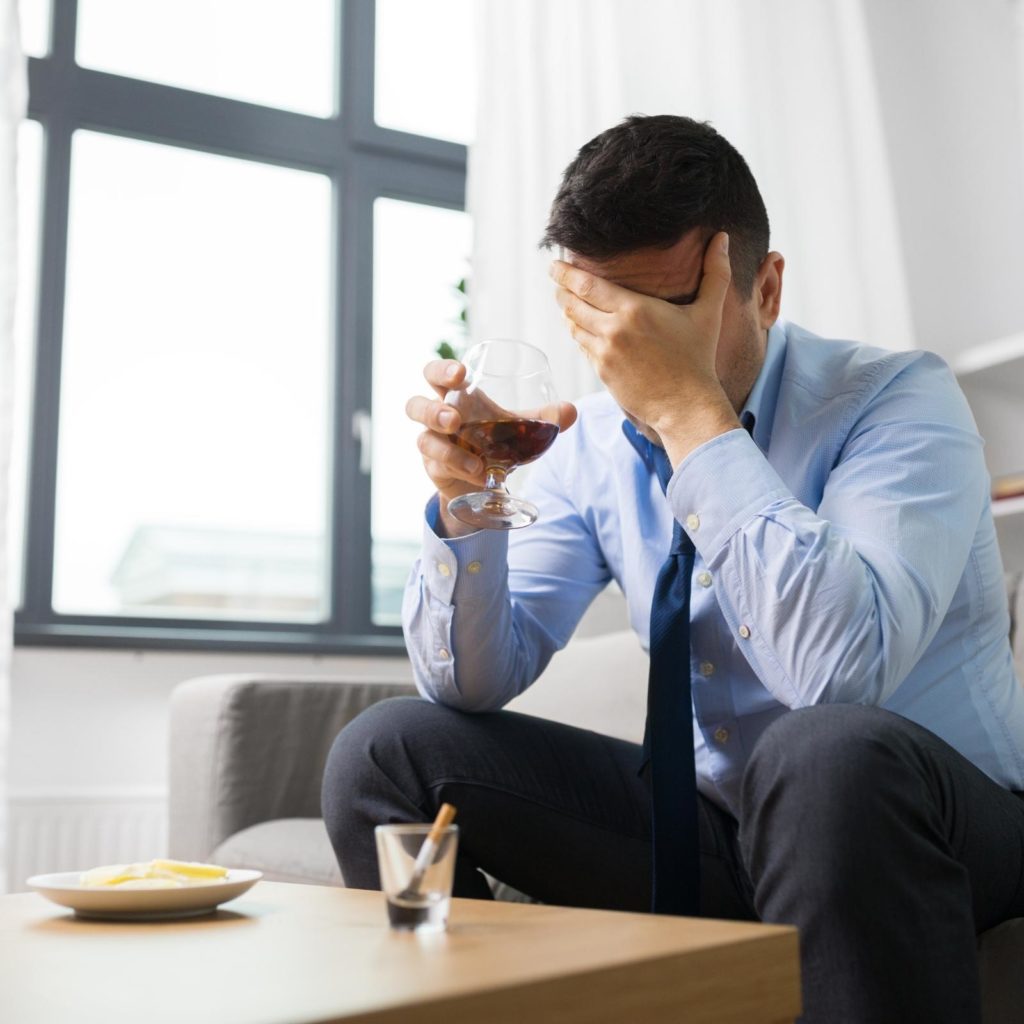What is Morphine?
Morphine is used to relieve moderate to severe pain. Morphine extended-release tablets and capsules are only used to relieve severe (around-the-clock) pain that cannot be controlled by the use of other pain medications. Morphine extended-release tablets and capsules should not be used to treat pain that can be controlled by medication that is taken as needed. Morphine is in a class of medications called opiate (narcotic) analgesics. It works by changing the way the brain and nervous system respond to pain.

Morphine may be habit-forming or may cause drug addiction, especially with prolonged use. You have to tell your doctor if you or anyone in your family:
- Drinks or has ever drunk large amounts of alcohol
- Uses or has ever used street drugs
- Has overused prescription medications
- Has had a drug overdose
- If you have or have ever had depression or another psychiatric disorder
There is a greater risk that you will overuse morphine and alcohol if you have or have ever had any of these conditions.
Morphine’s Interaction with the Body
Opioid addiction such as morphine abuse is a major public health concern. When used correctly under a health care provider’s direction, prescription pain medicines are helpful. However, misusing prescription opioids such as morphine risks dependence and addiction.
Morphine may cause side effects. Tell your doctor if any of these symptoms are severe or do not go away:
- Drowsiness
- Stomach pain and cramps
- Dry mouth
- Headache
- Nervousness
- Mood changes
- Small pupils (black circles in the middle of the eyes
- Difficulty urinating or pain when urinating

Get Your Life Back
Find Hope & Recovery. Get Safe Comfortable Detox, Addiction Rehab & Dual Diagnosis High-Quality Care.
Hotline(844) 597-1011Some side effects can be serious. If you experience any of the following symptoms, call your doctor immediately:
- Blue or purple color to the skin
- Changes in heartbeat
- Agitation
- hallucinations (seeing things or hearing voices that do not exist)
- Fever
- Sweating
- Confusion
- Fast heartbeat
- Shivering
- Severe muscle stiffness or twitching
- Loss of coordination
- Nausea
- Vomiting or Diarrhea
- Loss of appetite
- Weakness
- Inability to get or keep an erection
- Irregular menstruation
- Decreased sexual desire
- Extreme drowsiness
- Chest pain
- Hives
- Rash
- Itching
- Swelling of the eyes, face, mouth, lips, or throat
- Hoarseness
- Difficulty breathing or swallowing
- Seizures
Morphine and alcohol may cause other side effects. Call your doctor if you have any unusual problems while you are taking this medication.
Mixing Alcohol and Morphine
Drinking morphine and alcohol, taking prescription or nonprescription medications that contain alcohol, or using street drugs during your treatment with morphine increases the risk that you will experience breathing problems or other serious, life-threatening side effects.
If you are taking Avinza brand long-acting capsules, it is especially important that you do not drink any drinks that contain alcohol or take any prescription or nonprescription medications that contain alcohol. Alcohol may cause the morphine in Avinza® brand long-acting capsules to be released into your body too quickly, causing serious health problems or death. Do not drink alcohol, take any prescription or nonprescription medications that contain alcohol, or use street drugs during your treatment with other morphine products. [1]
Get Help. Get Better. Get Your Life Back.
Searching for Accredited Drug and Alcohol Rehab Centers Near You?
Even if you have failed previously and relapsed, or are in the middle of a difficult crisis, we stand ready to support you. Our trusted behavioral health specialists will not give up on you. When you feel ready or just want someone to speak to about therapy alternatives to change your life call us. Even if we cannot assist you, we will lead you to wherever you can get support. There is no obligation. Call our hotline today.
(844) 597-1011Dangers of Mixing Alcohol and Morphine
Combining drugs (prescribed or not prescribed) or substances such as morphine and alcohol can have unpredictable and unwanted consequences. We can help ourselves, our friends, and our community by understanding the dangers and taking steps to prevent harm and get alcoholism treatment.
Prescription opiates (e.g., Vicodin, OxyContin, Tylenol 3 with codeine, Percocet, morphine) combined with alcohol can result in slowed or arrested breathing, lowered pulse, and blood pressure, unconsciousness, coma, and potential death. [2]
Note: It is illegal to misuse prescription medication, that is:
- Continue to use medication when the prescription is no longer valid
- Use prescribed drugs contrary to the prescription
- Use prescription drugs not prescribed to you
- Give or sell prescribed drugs to another person
Misusing prescription drugs can result in a conviction with jail time.
Morphine and Alcohol Side Effects
Women, in general, have a higher risk for problems than men. When a woman drinks, the alcohol in her bloodstream typically reaches a higher level than a man’s even if both are drinking the same amount. This is because women’s bodies generally have less water than men’s bodies. Because alcohol mixes with body water, a given amount of alcohol is more concentrated in a woman’s body than in a man’s. As a result, women are more susceptible to alcohol-related damage to organs such as the liver.
Mixing prescription drugs with alcohol can be harmful. Alcohol, like some medicines, can make you sleepy, drowsy, or lightheaded. Drinking alcohol while taking medicines can intensify these effects. You may have trouble concentrating or performing mechanical skills. Small amounts of alcohol can make it dangerous to drive, and when you mix alcohol with certain medicines you put yourself at even greater risk. Combining alcohol with some medicines can lead to falls and serious injuries, especially among older people.
Older people are at particularly high risk for harmful alcohol–medication interactions. Aging slows the body’s ability to break down alcohol, so alcohol remains in a person’s system longer. Older people also are more likely to take a medication that interacts with alcohol—in fact, they often need to take more than one of these medications.

The potential harm of mixing morphine and alcohol can happen in three ways:
- When people do not know that there are significant alcohol and prescription opiate/opioid drug interactions and are caught by surprise when they inadvertently drink while using prescription medication
- When people knowingly combine alcohol with other drugs because they mistakenly believe it will be a “better” or “enriched” intoxication
- As a tool to facilitate a crime (sexual assault, robbery, etc) by making a victim incapacitated
First-class Facilities & Amenities
World-class High-Quality Addiction & Mental Health Rehabilitation Treatment
Rehab Centers TourRenowned Addiction Centers. Serene Private Facilities. Inpatient rehab programs vary.
Addiction Helpline(844) 597-1011Proven recovery success experience, backed by a Team w/ History of:
15+
Years of Unified Experience
100s
5-Star Reviews Across Our Centers
10K
Recovery Success Stories Across Our Network
- Low Patient to Therapist Ratio
- Onsite Medical Detox Center
- Comprehensive Dual-Diagnosis Treatment
- Complimentary Family & Alumni Programs
- Coaching, Recovery & Personal Development Events
Effects of Morphine and Alcohol
Opioids such as morphine work by binding to opioid receptors, creating an analgesic effect by blocking pain signals to the brain. They can also produce a feeling of euphoria. Alcohol works by spreading through the body through the bloodstream.
Combining morphine and alcohol can have severe consequences and be fatal. Because opioids and alcohol are both depressants, combining them can have a synergistic effect. This means the effect of each substance is more potent when taken together than when taken separately.
Mixing morphine and alcohol can result in a number of side effects, including:
- Respiratory depression and arrest
- Unconsciousness
- Cardiovascular risk
- Irregular heart rate
- Coma
- Nausea and vomiting
- Dehydration
- Changes in blood pressure
- Loss of coordination
- Dizziness
- Extreme lack of inhibition
- Unusual behavior
Treatment for Co-occurring Alcohol and Morphine Addiction
Receive treatment for co-occurring disorders today.
The We Level Up treatment center can help with inpatient therapy programs exclusively. Because each client is different and requires unique, comprehensive care according to their situation, our staff of well-trained physicians and nurses first begin the client relationship with a detailed one-on-one assessment.
We Level Up is a multi-faceted primary drug and alcohol dual diagnosis program treating secondary co-occurring mental health conditions. Our team uses evidence-based proven methods to generate cutting-edge solutions to substance abuse and behavioral health challenges. With support programs targeted towards families and individuals. We work to improve the health of the public and of individuals from every behavioral and related integrated addiction primary and mental health secondary treatment option. This includes constant research and innovation on substance abuse and integrated co-occurring mental health treatment models paired with individuals in a conducive environment.
World-class, Accredited, 5-Star Reviewed, Effective Addiction & Mental Health Programs. Complete Behavioral Health Inpatient Rehab, Detox plus Co-occuring Disorders Therapy.
CALL(844) 597-1011End the Addiction Pain. End the Emotional Rollercoaster. Get Your Life Back. Start Drug, Alcohol & Dual Diagnosis Mental Health Treatment Now. Get Free No-obligation Guidance by Substance Abuse Specialists Who Understand Addiction & Mental Health Recovery & Know How to Help.
Detox Program
Withdrawal from morphine and alcohol is an important first step to overcoming your addiction. However, withdrawal isn’t an effective treatment by itself. You’ll need further treatment and support to help you in the long term. [3]
Often, morphine and alcohol can lead to severe withdrawal symptoms. However, proper care and medical supervision will greatly reduce the chances of developing these symptoms and ensure a safe medical detox process.

Once fully admitted and evaluated, the 2nd stage of detox gets underway: stabilization. Based on the data provided during the admissions process, patient feedback, and the symptoms observed; our experienced team of medical addiction professionals will provide care to keep the patient stable and as comfortable as possible. [4]
Cognitive Behavioral Therapy
Cognitive-behavioral therapy (CBT) is a widely used treatment for alcohol abuse and addiction to help individuals identify negative thought patterns, emotions, and problematic behaviors and learn how to make healthy lifestyle changes that decrease the urges to abuse morphine and alcohol or other substances; paying particular attention to symptoms of psychosis, depression, and other co-existing mental health-related problems or dual diagnosis that are exacerbated by stress.
Counseling Services
Individual, group and family counseling services are offered in the majority of mental health and substance abuse treatment programs to “get to the root of the problems”, improve communications and relationships, and motivate the abuser toward positive changes. . The structured guidance of a counselor helps the patient stay on track and in the right perspectives as they strive to achieve their potentials and goals of recovery.
Our FREE 24-hour Hotline can help you with the resources for morphine and alcohol addiction treatment. Get a free consultation now for your best-fitting treatment programs along with free rehab insurance verification. Call We Level Up today and speak with one of our addiction specialists to check your rehab insurance coverage and benefits.
Experience Transformative Recovery at We Level Up Treatment Centers.
See our authentic success stories. Get inspired. Get the help you deserve.
Start a New Life
Begin with a free call to an addiction & behavioral health treatment advisor. Learn more about our dual-diagnosis programs. The We Level Up Treatment Center Network delivers recovery programs that vary by each treatment facility. Call to learn more.
- Personalized Care
- Caring Accountable Staff
- World-class Amenities
- Licensed & Accredited
- Renowned w/ 100s 5-Star Reviews
We’ll Call You
Sources:
[1] Morphine – U.S. Department of Health and Human Services National Institutes of Health
[2] The Effects of Combining Alcohol with Other Drugs – https://uhs.umich.edu/combine
[3] Alcohol Misuse – https://www.nhs.uk/conditions/alcohol-misuse/treatment/
[4] Stabilization Treatment Program – We Level Up New Jersey


